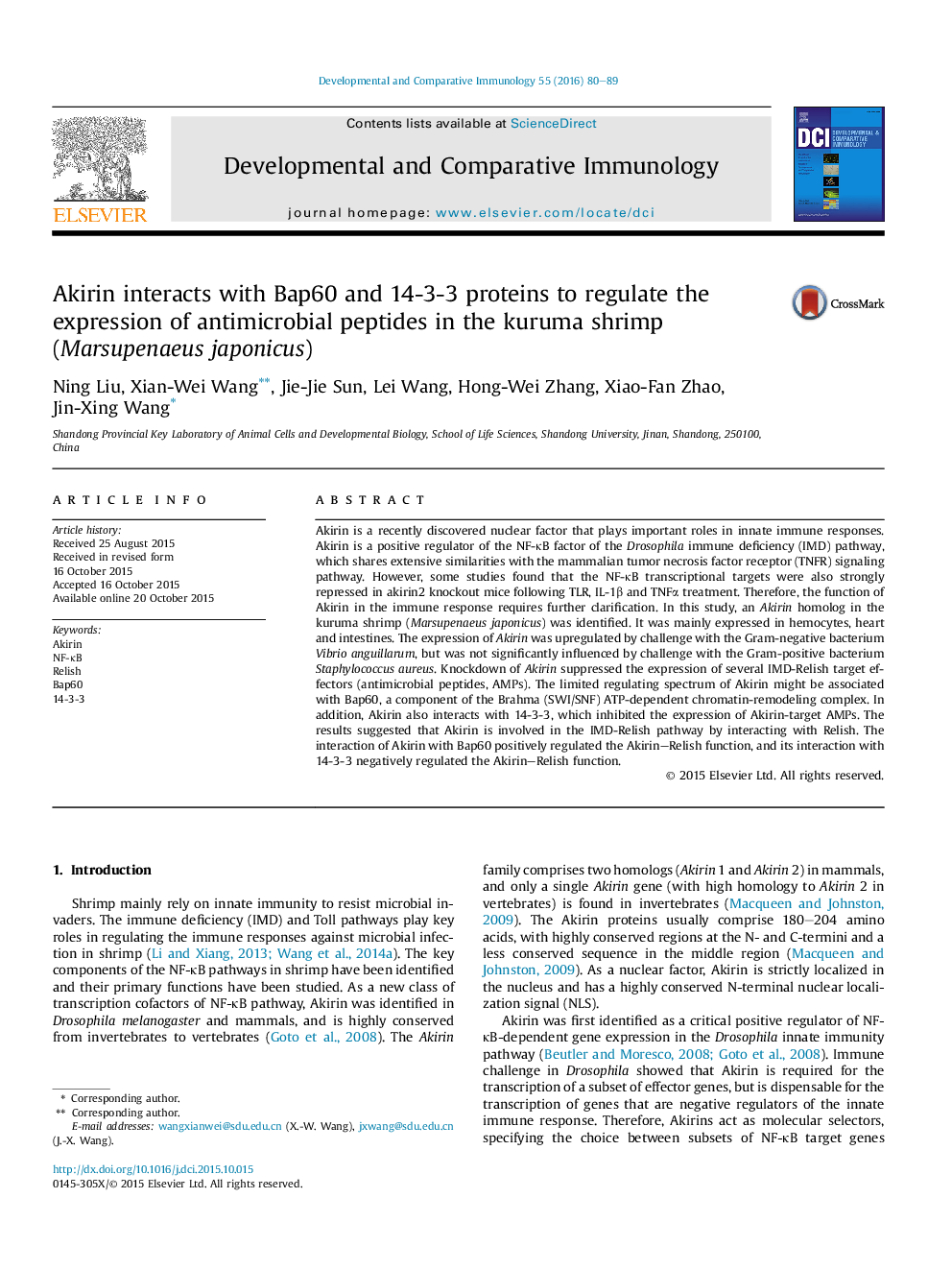| کد مقاله | کد نشریه | سال انتشار | مقاله انگلیسی | نسخه تمام متن |
|---|---|---|---|---|
| 2428845 | 1553577 | 2016 | 10 صفحه PDF | دانلود رایگان |

• Shrimp Akirin is involved in the IMD-Relish pathway by interacting with Relish.
• Interaction of Akirin with Bap60 positively regulated the Akirin–Relish function.
• Interaction of Akirin with 14-3-3 negatively regulated the Akirin–Relish function.
Akirin is a recently discovered nuclear factor that plays important roles in innate immune responses. Akirin is a positive regulator of the NF-κB factor of the Drosophila immune deficiency (IMD) pathway, which shares extensive similarities with the mammalian tumor necrosis factor receptor (TNFR) signaling pathway. However, some studies found that the NF-κB transcriptional targets were also strongly repressed in akirin2 knockout mice following TLR, IL-1β and TNFα treatment. Therefore, the function of Akirin in the immune response requires further clarification. In this study, an Akirin homolog in the kuruma shrimp (Marsupenaeus japonicus) was identified. It was mainly expressed in hemocytes, heart and intestines. The expression of Akirin was upregulated by challenge with the Gram-negative bacterium Vibrio anguillarum, but was not significantly influenced by challenge with the Gram-positive bacterium Staphylococcus aureus. Knockdown of Akirin suppressed the expression of several IMD-Relish target effectors (antimicrobial peptides, AMPs). The limited regulating spectrum of Akirin might be associated with Bap60, a component of the Brahma (SWI/SNF) ATP-dependent chromatin-remodeling complex. In addition, Akirin also interacts with 14-3-3, which inhibited the expression of Akirin-target AMPs. The results suggested that Akirin is involved in the IMD-Relish pathway by interacting with Relish. The interaction of Akirin with Bap60 positively regulated the Akirin–Relish function, and its interaction with 14-3-3 negatively regulated the Akirin–Relish function.
Journal: Developmental & Comparative Immunology - Volume 55, February 2016, Pages 80–89